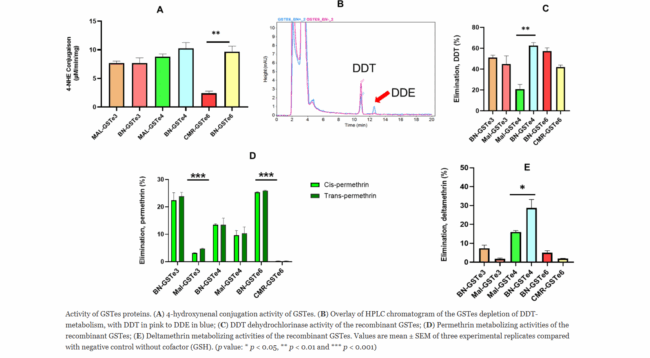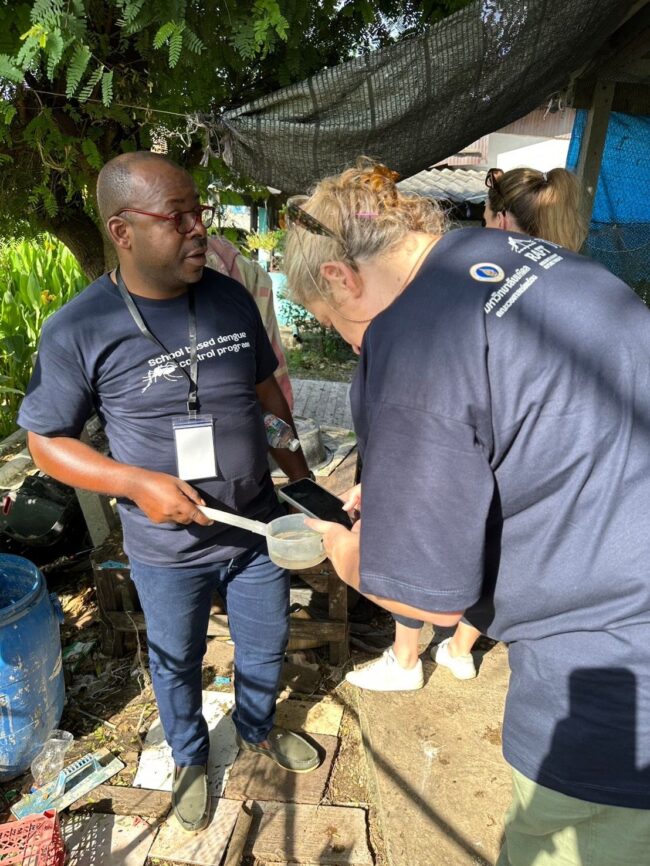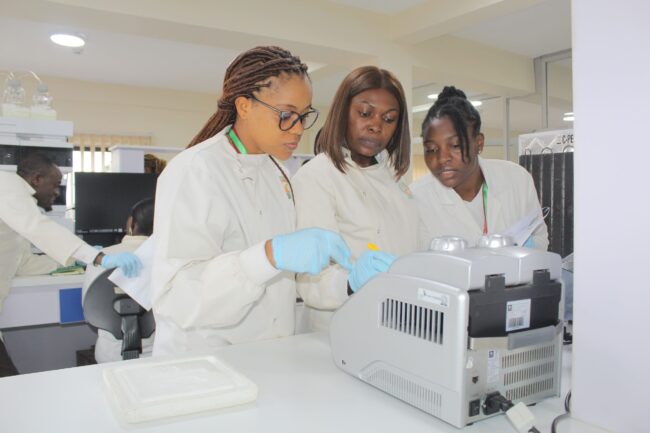Publication: Allelic variation in a cluster of epsilon glutathione S-transferase genes contributes to DDT and pyrethroid resistance in the major African malaria vector Anopheles funestus, by Dr Mersimine Kouamo et al.
Mosquitoes that spread malaria are becoming resistant to insecticides, making it harder to control the disease. Researchers at CRID are studying how mosquitoes develop this resistance to find new ways to combat it. They’ve discovered that certain genes, known as Glutathione S-transferase epsilon (GSTe) genes, play a key role in this resistance. The study revealed…



